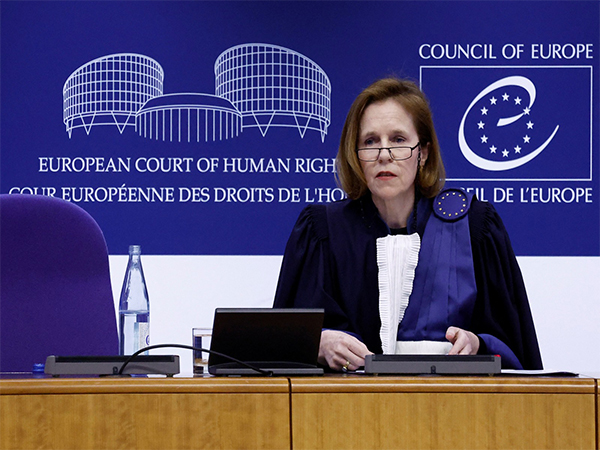International court finds Switzerland guilty of human rights violation in landmark climate case brought by 2,000 women
This landmark judgment, handed down by the European Court of Human Rights (ECHR) in Strasbourg, France, emerged from a case initiated by over 2,000 Swiss women, the majority of whom are in their 70s.

- Country:
- France
An international court based in France made a groundbreaking decision on Tuesday, asserting that Switzerland's failure to adequately confront the climate crisis constituted a violation of human rights, CNN reported. This landmark judgment, handed down by the European Court of Human Rights (ECHR) in Strasbourg, France, emerged from a case initiated by over 2,000 Swiss women, the majority of whom are in their 70s.
Their contention was that the heat waves exacerbated by climate change were undermining their health, quality of life, and even placing them at risk of death, as reported by CNN. In its ruling, the court declared that the Swiss government had infringed upon certain human rights of the women due to "critical gaps" in its national legislation aimed at reducing greenhouse gas emissions, as well as a failure to meet previous climate targets. The court stated that this failure amounted to a violation of the women's rights to effective protection from the "serious adverse effects of climate change on lives, health, well-being, and quality of life."
This verdict represents the first instance in which the court has ruled on climate litigation, and it holds significant weight as there is no avenue for appeal, rendering the judgment legally binding. Experts anticipate that this ruling could bolster other human rights-based climate cases currently pending before international courts and may pave the way for numerous similar lawsuits in the future. "Today's rulings against Switzerland sets a historic precedent that applies to all European countries," Gerry Liston, a lawyer at Global Legal Action Network, which supported the Portugal case, said in a statement. "It means that all European countries must urgently revise their targets so that they are science-based and aligned to 1.5 degrees. This is a massive win for all generations."
Furthermore, the ruling may compel Switzerland to accelerate its transition away from fossil fuels, which are the primary driver of anthropogenic climate change. Vesselina Newman, from the environmental lawyers organisation ClientEarth, said this result "from one of the world's highest courts sends a clear message: governments must take real action on emissions to safeguard the human rights of their citizens."
In addition to the Swiss case, the court also delivered judgments on two other claims. One involved a municipal mayor's claim against the French government, while the other, the largest and most prominent, was brought by six young people in Portugal against 32 European countries. However, these two claims were deemed "inadmissible," as reported by CNN. The French claim was rejected because the claimant had relocated from the country and no longer had ties to the region central to the case, thereby failing to meet the criteria of a "victim" for the purposes of the lawsuit.
Similarly, the Portuguese case was dismissed on the grounds that the claimants had not exhausted all available legal avenues within their national court system and lacked sufficient grounds to extend the claim beyond Portugal. Catarina dos Santos Mota, one of the claimants in that case, said while the ruling did not go their way, the judgment was still a win. "We didn't break the wall but we've made a huge crack," she said. "I want to see the win against Switzerland being used against all European countries and in national courts."
As the severity of the climate crisis escalates, climate litigation is emerging as an increasingly popular strategy to compel governments and corporations to enhance their climate action efforts. Tuesday's ruling in favour of the Swiss women establishes a precedent that may influence other international courts, including the International Court of Justice and the Inter-American Court of Human Rights, which have cases pending concerning the human rights implications of climate change, CNN reported. (ANI)
(This story has not been edited by Devdiscourse staff and is auto-generated from a syndicated feed.)
ALSO READ
Switzerland Braces for Potential Impact in US-Europe Tariff Dispute
Vietnam’s SMEs to Benefit from $35 Billion Supply Chain Finance Initiative Backed by IFC, Switzerland, and Local Partners
Switzerland's Economic Uncertainty: Foreign Developments Raise Concerns
Switzerland's Rate Cut Amidst Global Trade Uncertainty
Switzerland Defends its U.S. Economic Contributions Amid Tariff Threat










